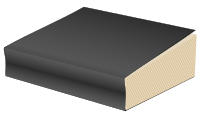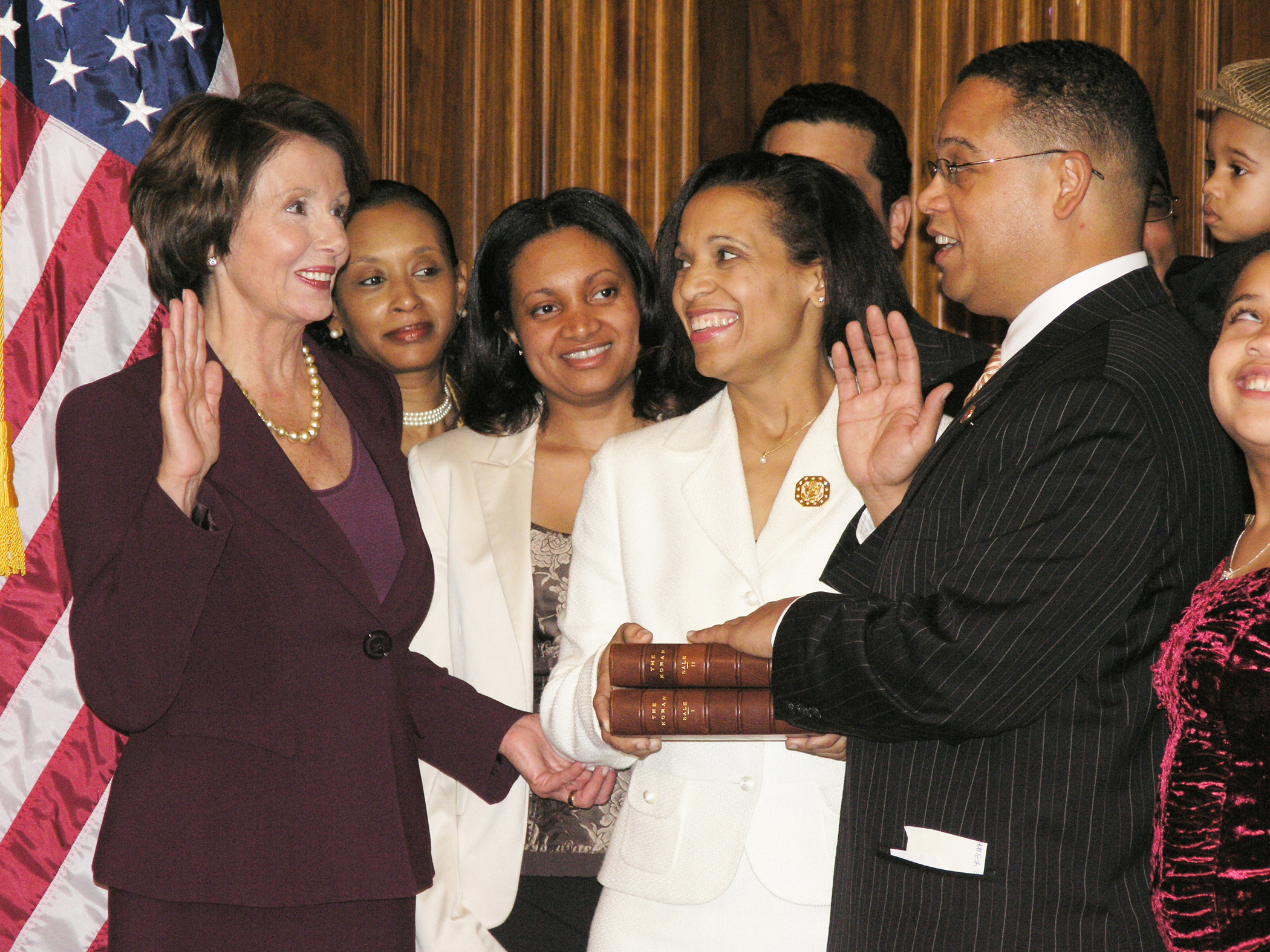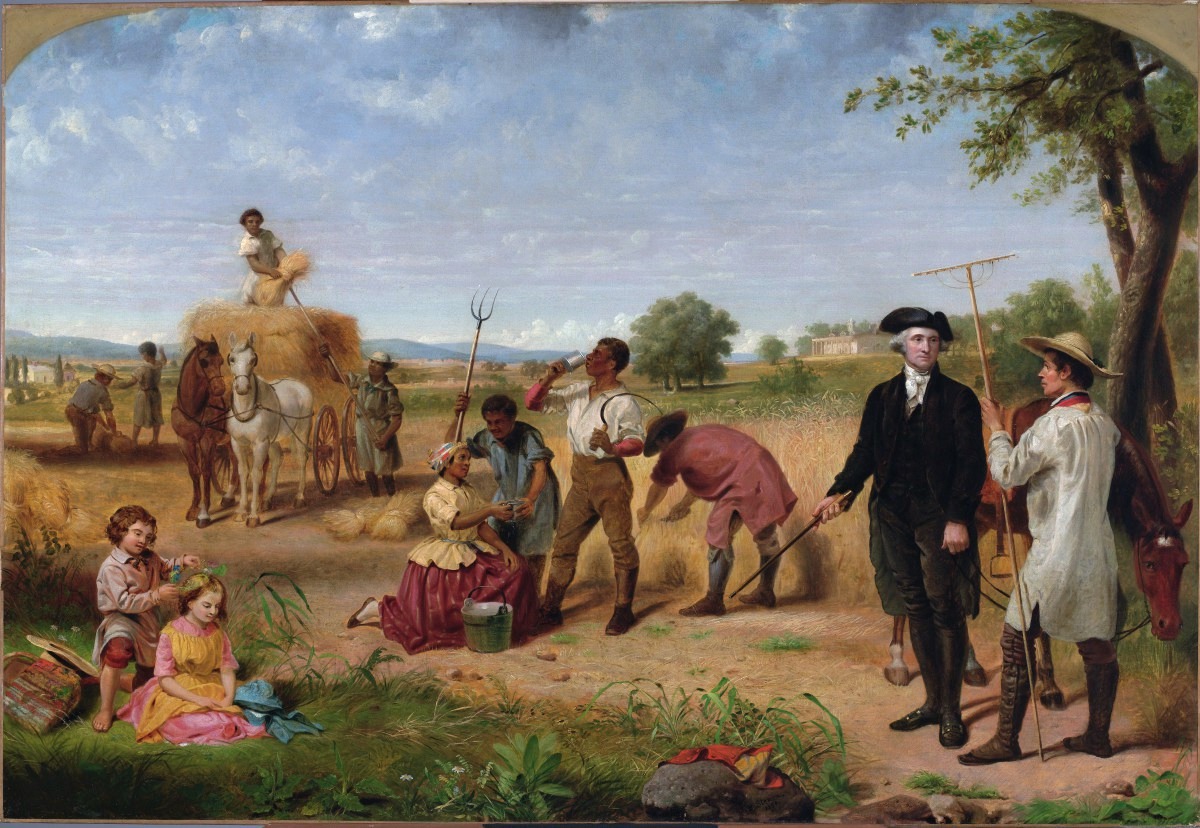

Focus Question: What were the historical influences for the American Revolution and how did they influence the formation of the American government?
Topics on the Page
Overview of the Coming of the Revolution
Legacy of ancient Greece and Rome
Who Voted in Early America
- Women Voting in New Jersey in the 1790s
Political theories of such European philosophers as Locke and Montesquieu
Jefferson and the Qu'ran
Slavery in a Democratic Society
 Cross-Link to AP U.S. History Colonial Independence and the Revolutionary War
Cross-Link to AP U.S. History Colonial Independence and the Revolutionary War
.png) Main Ideas of Men and Women Enlightenment Thinkers
Main Ideas of Men and Women Enlightenment Thinkers
See also The Foundations of American Government from Independence Hall Association in Philadelphia
 This video gives a comprehensive overview on the political and philosophical influences on the Founding Fathers and early American government
This video gives a comprehensive overview on the political and philosophical influences on the Founding Fathers and early American government
 Paul Woodruff in his book First Democracy: The Challenge of an Ancient Idea, Oxford University Press, 2005), identifies seven features of democracy, based on his analysis of ancient Athens (quoted in "Teaching for Democracy in an Age of Corporatocracy," Christine E. Sleeter, Teachers College Record, 110(1), January 2008, p 142):
Paul Woodruff in his book First Democracy: The Challenge of an Ancient Idea, Oxford University Press, 2005), identifies seven features of democracy, based on his analysis of ancient Athens (quoted in "Teaching for Democracy in an Age of Corporatocracy," Christine E. Sleeter, Teachers College Record, 110(1), January 2008, p 142):
- Freedom from tyranny
- The rule of law, applied equally to all citizens
- Harmony (people adhering collectively to the rule of law while accepting differences among people)
- Equality among people for purposes of governance
- Citizen wisdom built on the human capacity to "perceive, reason and judge"
- Active debate for reasoning through uncertainties
- General education designed to equip all citizens for social and political participation
 For more on the ideas that created the American Revolution, see the writing of historian Gordon S. Wood
For more on the ideas that created the American Revolution, see the writing of historian Gordon S. Wood
- The Creation of the American Republic, 1776-1787 (1969)
- The Radicalism of the American Revolution (1992)
- Empire of Liberty: A History of the Early Republic, 1789-1815 (2009)
Thomas Paine Statue, Thetford, United Kingdom (the book in his hand is entitled Rights of Man)

 Common Sense
Common Sense
- Written by Thomas Paine, but printed anonymously when published on January 10, 1776.
- It became instantly popular. It was written in a way so that normal people could read it and understand it.
- Paine openly argued for the independence of the colonies and truly helped the uprising.
Common Sense explained
 The Magna Carta
The Magna Carta
- This is an older document, written in 1215, but it set important precedent that would be followed in America.
- This text established the idea of limited government, that the King's rule was not absolute. This eventually would lead to parliament, which is a more Democratic political system.
- When the Founding Fathers thought that the King's rule was overreaching, the idea of the Magna Carta became ever-present in the Colonies.
Here is a timeline for the Magna Carta, as you can see it has direct influence on the American Revolution.
 Here is a video that summarizes the importance of the Magna Carta throughout history.
Here is a video that summarizes the importance of the Magna Carta throughout history.
The legacy and historical influence of Ancient Greece and Rome
1) Direct democracy, where the citizens themselves, not their representatives, were lawmakers.
Cleisthenes; Image from Ohio State House.org

Prior to the political restructuring that was energized by the political will of Cleisthenes, Athens was governed by a tyrannical presence and eventually an aristocratic establishment.
- In between the two aforementioned configurations was the political organization that Cleisthenes installed; "demokratia, or democracy – rule by the entire body of citizens."
- In contrast to what we know as representative democracy (the concept of election by majority of a few members to represent the interest of the masses), direct democracy, in theory, sought to achieve full political participation by every citizen.

.
2) Rule by the majority.
Majority rule is antithetical to decision-making by consensus (an agreement reached by all members within the city-state), but is thought to be the most efficient way to make decisions and does not absolutely require everyone to be involved in group action. The preemptive nature of rule by majority ensures that an agenda that could be potentially detrimental and held by very few does not impede on the necessity to make decisions.
3) Fair treatment of all persons under law.
Combined with the notion of "rule by majority" is the fact that in most cases, major decisions are not made unanimously--there are usually smaller factions that disagree with the majority's decision. To protect and serve those that diverge from the popular vote, there are established basic rights to ensure that "dissenters" are not disenfranchised and not given equal treatment and respect. Example of these rights are as followed:
- Individual Freedom -- people should be allowed to do what they want unless their actions hurt others
- Equal Protection -- the laws should be applied equally to all members of society
- Voting Rights -- all members of the society have the right to vote
- Freedom of Speech -- all members of the group have the right contribute whenever ideas they want in public debate
- Individual property -- individual property cannot be taken for public use without just compensation
- Due Process -- fair processes are used to resolve disputes concerning these rights
(all points taken directly from "Majority Rules Processes; see Colorado citation)
Persons implied men. Women were not originally included, in both Ancient Greece and Rome, and in the United States. Women in Ancient Greece were considered the property of their husbands, as well as the women of the early United States.
Click here for an overview of Greek, Roman, British, and Iroquois influence on the American government, with sample worksheets at the end.
Powerpoint of the influences of Rome and Greek on American government.
Voting in Early America
Who Voted in Early America? Constitutional Rights Foundation
Voting Rights Pre-Independence from Your Vote/Your Voice
Typically, white, male property owners twenty-one or older could vote
- Vermont's Constitution granted universal manhood suffrage in 1777
- There is evidence of women being allowed to vote in New Jersey between 1777 and 1807
Eliza Wilkinson, who was born to a wealthy plantation family near Charleston, South Carolina, said "I won't have it thought that because we are the weaker sex as to bodily strength we are capable of nothing more than domestic concerns. They won't even allow us liberty of thought, and that is all I want.".
Test Question
The ancient Athenians most influenced the development of democracy by creating a governmental system that strongly emphasized the importance of:
A. protecting the rights of the individual.
B. professional administration of government agencies.
C. dividing power among different components of government.
D. popular participation in the political process.
Correct Response: D
- The ancient Athenians believed every citizen had an obligation to participate in government.
- Accordingly, they established a form of direct democracy in which an assembly consisting of all adult male citizens debated major issues of the day and made laws.
- Although the most active political leaders came from upper-class families, ordinary citizens performed a broad range of governmental duties.
- This emphasis on the participation of a wide range of citizens in public affairs influenced subsequent political systems from the Roman Republic to the contemporary democracies of Europe, North America, and Latin America. (quoted from Oklahoma History Teacher Test Study Guide)
The political theories of such European philosophers as Locke and Montesquieu
 For more on the Enlightenment's influences, link to the following World History standards
For more on the Enlightenment's influences, link to the following World History standards
John Locke (1632-1704)
 |
| John Locke |
Locke was a preeminent intellectual and contributor to political theory.
- Locke is known for his contribution to the development of the Constitution of the Carolinas and how it is inextricably linked to his theory of value and property.
- He also weighed in on other issues of economy and political philosophy.
- Two important statements that are attributed his brilliance and speak to his depth as thinker is his belief that the "original state of nature" was happy and characterized by reason and tolerance.
- He further maintained that all human beings, in their natural state, were equal and free to pursue life, health, liberty, and possessions; and that these were "inalienable rights."
- The impact of his literary works had tremendous implications for the construction of American society during the American Revolution by influencing prominent American political figures.
- His ideas indirectly molded American politics and governance as demonstrated through his co-sponsorship of the American Constitution.
A dress-up Thomas Jefferson discussing Locke's influence on him.
A short animated video on John Locke's philosophy and its influence on the American Government
An article explaining Locke's views about women.
A blog post from University of Michigan Political Science students on their interpretation of Locke and his views of the social position of women
Paper arguing that Locke would support same-sex marriage.
Powerpoint of Locke's contribution to American democracy:
John Locke’s Contribution to American Democracy.ppt

Montesquieu (1689-1755)
Baron de Montesquieu used a naturalistic perspective to observe forms of government. He studied what made up forms of government and also searched for ways to preserve governments from corruption.
- Montesquieu believed that there were three types of government: republican, monarchy, and despotism. Each of these governments was susceptible to corruption.
- He believed despotism (absolute power) was dangerous.
- Montesquieu proposed that government corruption could be prevented by having a separated government, meaning different branches for legislative, executive, and judicial purposes. This idea had a large impact on the founders of the United States.
See more about Montesquieu's influence, here.
- View Montesquieu's views about slavery here.
Here are short descriptions of the influence that Locke, Montesquieu, Rousseau, and Hobbes had on American democracy.
A video from a history teacher on Locke's and Montesquieu's influence on the Founding Fathers
A prezi about the influence that Locke, Montesquieu, and Hobbes had on the establishment of American democracy.
- PDF about with excerpts about Montesquieu with discussion questions after. Briefly mentions views about women and slavery.
For more on the influences of English constitutional history on American thinking, see World History I.8.
Other Influences on Early American Democracy
- Short documentary on Iroquois Confederacy, dubbed the first democracy of the Americas
- Video on the influences, causes, and the American Revolution in general (important to note that the American Revolution, and Revolutionary War, are different things)
Nancy Pelosi (below) swearing Congressman Ellison's with Jefferson's Qur'an, January 2007

Jefferson and the Qur'an
Click here for a New York Times review of Thomas Jefferson's Qur'an: Islam and the Founders by Denise A. Spellberg (Knopf, 2013).
The author argues that Jefferson's had a copy of the Qur'an and it influenced his thinking about religious toleration.
Library of Congress documents early tolerance for Muslims in America, including works from Locke and Jefferson
For more, listen to a podcast about the book featuring the author.
Go here for the website of Congressman Keith Ellison (D: Minnesota).
Slavery in a Democratic Society
 |
| "Washington as Farmer at Mount Vernon", 1851 |
more on the development of slavery and efforts to abolish it
African Americans and the End of Slavery in Massachusetts, an exhibit from the Massachusetts Historical Society explores issues of freedom and bondage from the late 17th century to the abolition of slavery in the Massachusetts Constitution in the 1780s.
This link is an essay about Democracy and Slavery by John Greenleaf Whitter (1843)
Slavery trumps Democracy from Yale University
The Founding Fathers and Slavery - Encyclopedia Brittanica - an excellent chart that shows which American revolutionaries owned slaves and which did not.
Thomas Jefferson and the Divinity of The Founding Fathers - Ta-Nehisi Coates, The Atlantic - an article that discusses in depth Thomas Jefferson and his place in slavery and in the American Revolution.
Fighting...Maybe for Freedom, Maybe Not - Colonial Williamsburg
He Fought for His Freedom. Then His Sons Were Sold into Slavery - History.com
For further context of American thought on slavery, uprising and the political landscape of revolution, check out this 15 minute history podcast on the Haitian Revolution and how it was influenced by the American Revolution - and why it scared Americans and other slave-holding nations so badly.
The Haitian Revolution - 15 Minute History
Primary Documents to Consider
- Massachusetts Body of Liberties (1641)
Sources
http://www.historyguide.org/ancient/lecture6b.html
http://www.colorado.edu/conflict/peace/treatment/majority.htm
http://www.iep.utm.edu/l/locke.htm#Ideas%20in%20General
http://www.blupete.com/Literature/Biographies/Philosophy/Locke.htm#Social
The Coming of the American Revolution, 1774-1776 This interactive website from the Massachusetts Historical Society allows students to investigate the lives and events recorded in newspapers, official documents and personal correspondence from our collection as a way to discover the forces leading to revolution.
Image IDs from left to right
1. Continental Army Wikimedia Commons, "Infantry, Continental Army, 1779 - 1783".
2. Signing of the Constitution Wikimedia Commons, "Scene at the Signing of the Constitution of the United States".
3. Parthenon Wikimedia Commons, "2006 01 21 Athenes Parthenon".
4. Thomas Jefferson Wikimedia Commons, "Rembrandt Peale - Thomas Jefferson".
5. Franklin Quote Wikimedia Commons, "Freedom of Thought Ben Franklin".
6. John Locke Wikimedia Commons, "Locke-John-LOC".
Comments (0)
You don't have permission to comment on this page.